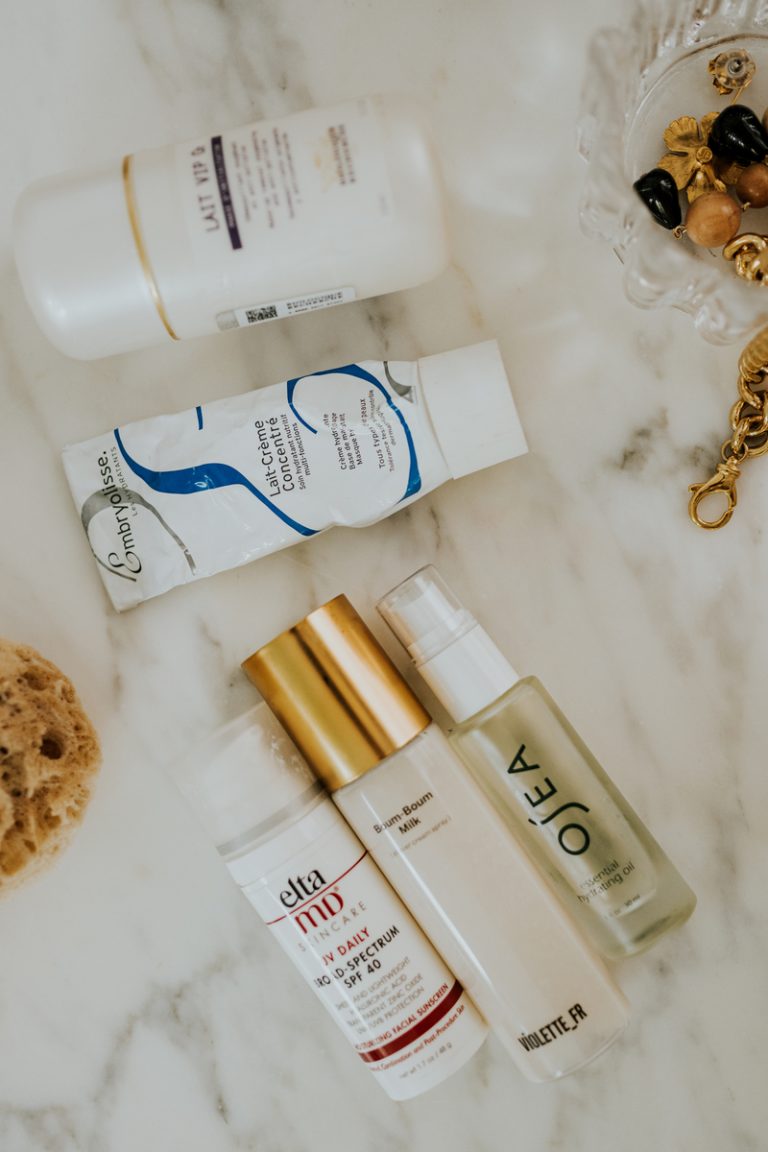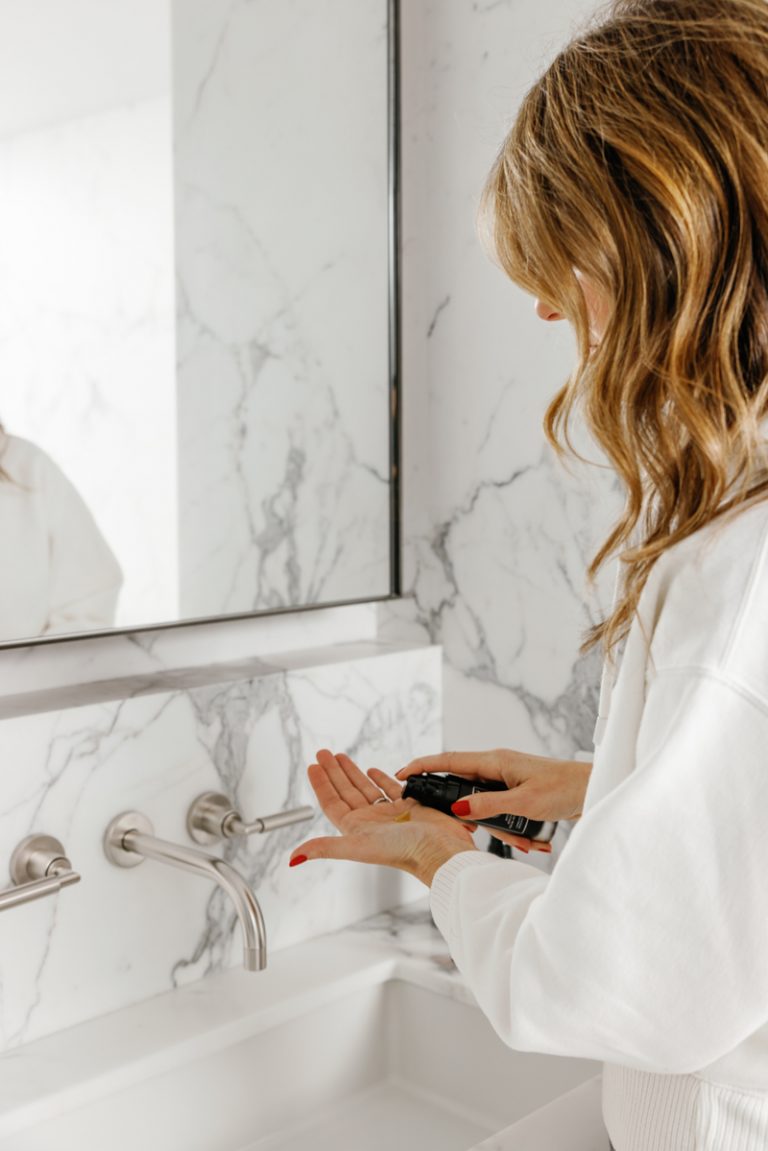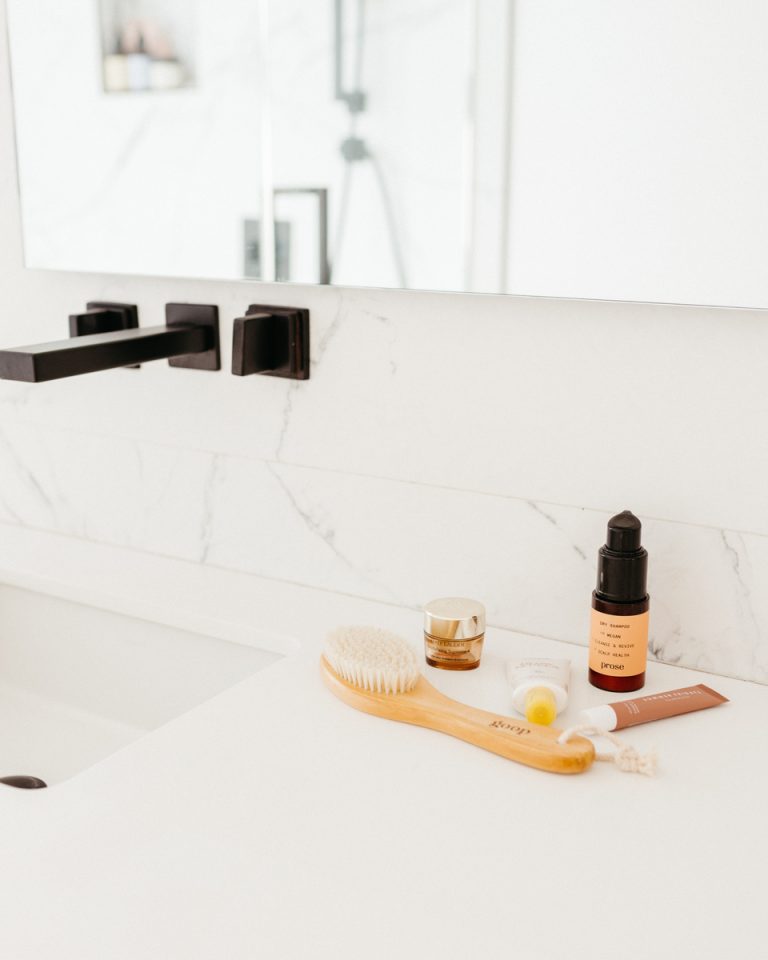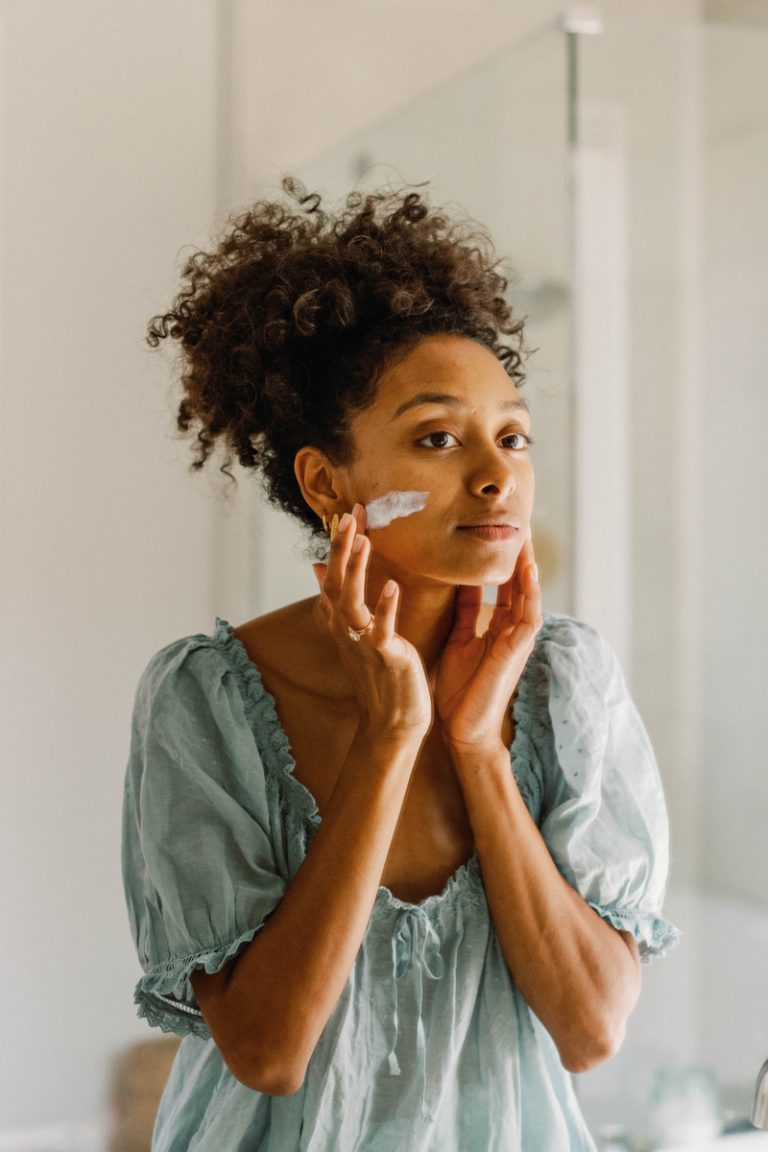Three Experts Weigh In: The Truth About What Stress Is Really Doing to Your Skin
Short answer: chill out. The post Three Experts Weigh In: The Truth About What Stress Is Really Doing to Your Skin appeared first on Camille Styles.

A sad truth: for many of us, it feels like life gets busier and more stressful each day. And, as if we needed another thing to stress about, all those anxieties show up on our skin. A stress breakout is a type of hormonal acne that flares up during—you guessed it—periods of high stress. Addressing stress-related bouts of acne is more complex than just trying to “stress less.” To counteract both the physical symptoms and the other long-term health effects of a high-stress life, you have to make both external and internal changes.
Featured image from our interview with Marie Kouadio Amouzame by Belathée Photography.
1 of 32

Subscribe
Sleep well.
Sign up to receive a FREE E-BOOK with 12 steps to your best sleep ever.
Thanks for Signing Up!
Oops!
Looks like you’re already signed up or your email address is invalid.
Oops!
Looks like you unsubscribed before click here to resubscribe.
Experts on What’s Causing Your Stress Breakout
“Stress comes in a full spectrum,” says Patricia Walker, founder of Farm to Skin and a holistic beauty advocate. “At one end, stress in small doses can help motivate us to meet challenges at work, school, or home. At the other end, it can make us feel overwhelmed, discouraged, and trigger health concerns. Such symptoms can be an inability to sleep, headaches, elevated heart rate, digestive issues, hair loss, skin conditions including acne, redness, rosacea, and itching.”
To get the lowdown on all things stress and its impact on your skin, I also chatted with Colleen Rothschild, whose beauty insights have been honed by her 20+ years of experience in the beauty industry and culminated in the founding of Colleen Rothschild Beauty. Dr. Loretta Ciraldo MD FAAD, a Miami-based board-certified dermatologist with over 40 years experience and founder of Dr. Loretta skincare also shared her invaluable insights.
“Too many of us use a 10x magnifier to look at ourselves. This alone can give you more stress,” says Dr. Loretta. “You are definitely not as bad as those high-mag mirrors make all of us look.”
Turns out, by adopting a holistic approach and switching up your skincare routine when you spot a stress breakout, you can stop acne and prevent future flare-ups. Read on to discover what stress is doing to your skin and how you can fix it—for good.
2 of 32
How Stress Breakouts Show Up on Your Skin
“Stress can show up on the skin in various ways,” says Rothschild.
Blemishes. Stress can trigger an increase in oil production, which can clog pores and lead to acne breakouts. Dryness or dehydration. Stress can impair the skin’s natural barrier function, leading to increased water loss and dryness or dehydration of the skin. Redness and irritation. Stress can cause inflammation in the skin, leading to redness, irritation, and sensitivity. Wrinkles and fine lines. Chronic stress can accelerate the aging process by leading to premature wrinkles and fine lines. Dark circles and puffiness. Stress can disrupt sleep patterns, leading to dark circles and puffiness under the eyes.How Stress Affects Our Skin
According to Walker, “When we experience stress, our bodies release a flood of stress hormones, including adrenaline and cortisol. An increase in these hormone levels triggers an increase in oil production, which can lead to breakouts. Further, when we are under stress, we have a tendency to eat poorly and drink more alcohol. Both of which lead to dehydrated, inflamed skin.”
Stress also triggers flares of most if not all skin disorders, from psoriasis to eczema to acne.
“Our skin has cortisol receptors that then go on to trigger an increase in skin blood vessel dilation, resulting in skin redness and worsening of conditions like rosacea as well as an increase in collagen breakdown, leading to the deepening of lines and wrinkles,” says Dr. Loretta.
3 of 32
What are the long-term effects of stress on your skin?
“Stress can also impair the skin’s natural barrier function, leading to dehydration and increased sensitivity,” says Rothschild.
Most surprising—and anxiety-inducing, ironically—is its impact on premature aging. “Chronic stress can accelerate the aging process by breaking down collagen and elastin in the skin, leading to wrinkles and sagging” Rothschild adds. “Stress can also affect the skin’s microbiome, the community of bacteria and other microorganisms that live on the skin, which can lead to a range of issues.”
4 of 32
How to Prevent a Stress Breakout
“Before we can restore balance to our nervous system, it is important to both recognize when we are feeling overwhelmed and develop an awareness of our stress symptoms. It is important to go beyond recognizing the feeling of stress and actually take the time to understand what the root cause of the stress is,” says Walker.
“It would be almost impossible to completely remove stress from our lives, but we can learn to recognize what triggers it, how our bodies react to it and control how much it affects us. Understanding what makes you feel at ease can help mediate the amount of stress that you feel. Then find time to intentionally add those activities to your daily routine—even if it’s just a few minutes a day!”
To specifically prevent stress pimples, Rothschild adds, “Practice good skincare habits such as using gentle products and protecting the skin from UV damage with sunscreen and staying hydrated by drinking plenty of water.”
5 of 32
How to Get Rid of Stress Breakouts
From Dr. Loretta: “The best approach to lessen the effects of stress on your skin is to determine what visible effect the increased stress is having on your skin and to address the unwanted changes with appropriate skincare. The most successful approach is to address these issues in a more skin-friendly, less aggressive approach, whether they are aging changes or acne, or even hyperpigmentation since increased cortisol can produce excess skin melanin.”
Rothschild recommends the following to soothe and nourish stressed skin:
gentle cleansers hydrating moisturizers targeted treatments such as antioxidants and anti-inflammatory ingredients 6 of 32
How to Adjust Your Skincare Routine for Stress
“Take stock of your whole skincare regime,” says Dr. Loretta. Stress might mean taking a step back from stronger ingredients.
She elaborates: “It may be that you have been so stressed out that you are getting more aggressive with your use of exfoliants or retinoids to try to look better, faster. But stress can also make our skin more sensitive, so it is important to dial down on aggressive products, either in the frequency of application or the concentration of the product. So if you are going to start to do at-home peels for hyperpigmentation, acne, or lines and wrinkles, definitely only follow product directions. If you experience a sting or redness, use the product only one-half the amount of time recommended—e.g., every fourth night instead of every other night.”
But remember: consistency is key, Dr. Loretta warns. (And not just for your appearance.) A simple, but dedicated skincare practice can be a moment of the day when you detach from your worries, allowing you to focus on the ritual of self-care.
“Try to have a good morning and evening routine if you don’t already have one. Sometimes being stressed means that we neglect our own self-care. Try to think of your regimens as ‘me time’ and as something positive you are taking the time to do for yourself. This can be helpful to lessen the unwanted changes you’re experiencing from increased stress.”
And, of course, get some sleep!
7 of 32
What ingredients target stress breakouts?
“Unrefined plant oils that contain high amounts of linoleic acid can help regulate skin oil production naturally and restore a healthy balance,” notes Walker. “Avoid synthetic fragrance, preservatives, and other harsh ingredients which can all cause further inflammation.”
Rothschild recommends topical treatments such as serums, masks, and creams containing ingredients like the following to hydrate and soothe the skin:
niacinamide vitamin C hyaluronic acid blue agave poppy seed oil matcha tea 8 of 32
The Best Wellness Products to Help Stress Less
Every product is curated with care by our editors. If you buy something through our links, we may earn a small commission at no cost to you.
9 of 32

 Lynk
Lynk 






























